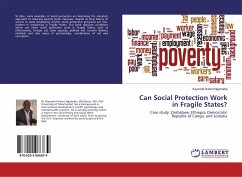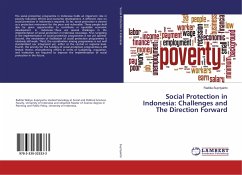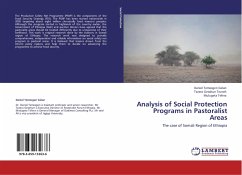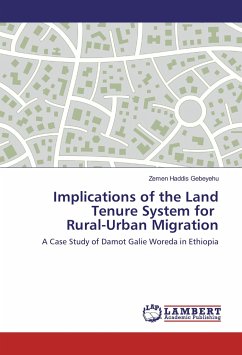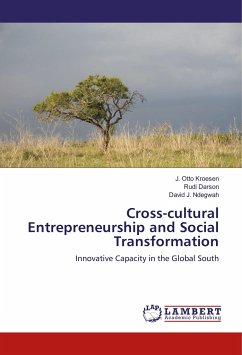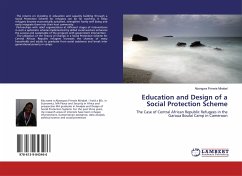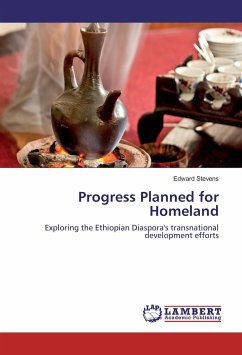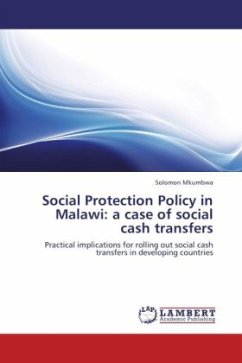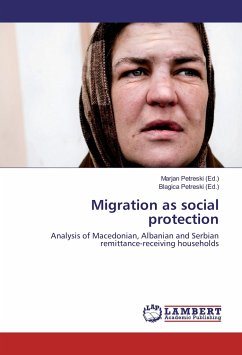
Migration as social protection
Analysis of Macedonian, Albanian and Serbian remittance-receiving households
Herausgeber: Petreski, Marjan; Petreski, Blagica
Versandkostenfrei!
Versandfertig in 1-2 Wochen
32,99 €
inkl. MwSt.

PAYBACK Punkte
16 °P sammeln!
This book examines how remittances affect various facets of households¿ vulnerability in the three countries of the Western Balkan: Macedonia, Albania and Serbia, which are large recipients of such inflows. The quantitative analysis is based on an index of vulnerability comprehending various aspects like income, unemployment, health, housing, material deprivation, leisure time. Then, remittances are allowed to affect vulnerability in fairly standard regressions. A special attention is paid to the endogeneity of remittances in the proposed framework, as well on the plausible exogeneity of the ...
This book examines how remittances affect various facets of households¿ vulnerability in the three countries of the Western Balkan: Macedonia, Albania and Serbia, which are large recipients of such inflows. The quantitative analysis is based on an index of vulnerability comprehending various aspects like income, unemployment, health, housing, material deprivation, leisure time. Then, remittances are allowed to affect vulnerability in fairly standard regressions. A special attention is paid to the endogeneity of remittances in the proposed framework, as well on the plausible exogeneity of the proposed instruments. We use the Remittances Survey 2012 for Macedonia, Living Standard Measurement Survey 2012 for Albania and the Survey on Income and Living Conditions 2013 for Serbia. The qualitative part relies on primary data collected from about 15 interviews in each of the three countries. In all three countries, remittances were estimated to have a strong quantitative effect on vulnerability. The effect was then found to occur in similar contexts. The book documents remittances as a social protection vehicle in all three countries.



